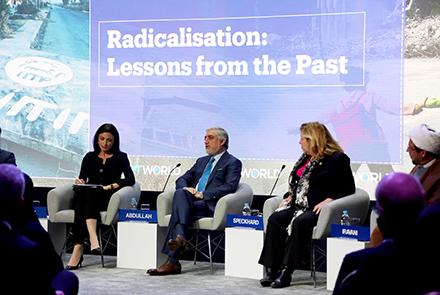Chief Executive Abdullah Abdulla addressed a debate on “Radicalization: Lessons from the Past” on the sidelines of the World Economic Forum on Middle East and North Africa in Jordon where he stressed the need for joint efforts of all governments in fighting terrorism and extremism.
“We cannot realistically hope to de-radicalize all radicals, but can do a lot more collectively to minimize the chances of their hateful messages resonating with the public,” he said.
Abdullah said that supporting terrorism will harm even their supporters.
“In order to fight terrorism, extremism and radicalization it is the responsibility of all governments to stop using terrorism as a mean to obtain foreign policy objectives.
Supporting terrorism and extremism is counterproductive and harmful even for their supporters,” he said.
Abdullah said that Afghanistan has rendered great sacrifices in the fight against terrorism.
“Afghanistan is not an exception, where criminal networks abuse religion to justify their crimes. But we must not forget that Muslim armies and peoples in Afghanistan, Iraq and elsewhere do the bulk of fighting and render great sacrifices against terrorists,” he added.
Abdullah said there is a need for effective collaboration between religious scholars, the media, civil society and governments “to defeat the evil of extremism and radicalization”.
“The government of Afghanistan is committed to fighting terrorisms and all forms of radicalization,” he reiterated.


